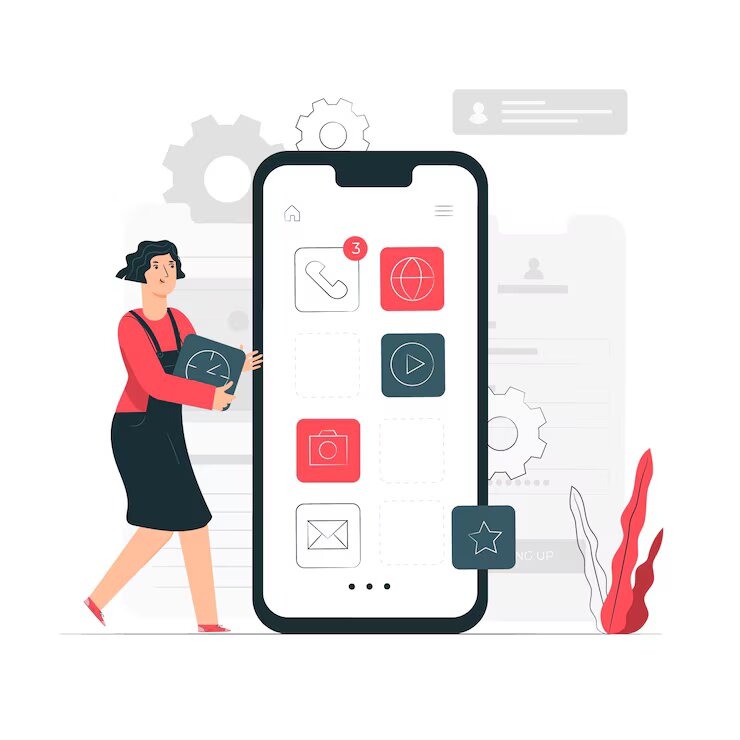Choosing between Android or iOS app development can have a significant impact on your app’s success. It affects the app’s visibility, customer attraction, revenue generation, and brand image. Therefore, it’s important to understand the unique benefits each platform offers for your startup.
As a startup, the revenue generated should demonstrate the value and long-term benefits of opting for iOS app development. Even if revenue is not the primary focus initially, choosing iOS ensures better user data and privacy security, improved user experience, higher revenue, and top-tier application quality.
The budget of mobile app startups can often seem like a constraint when choosing to build a profit and value-oriented operating system that promises the most lucrative outcomes. It is important to understand that budget cannot be an obstacle, considering your startup while opting for iOS app development for business growth. You can simply opt for iPhone app development services or Android app development services according to your choice.
In this blog, we will delve into the key differences between Android and iOS application development. Let’s dive into the topic.
Comparison Between Android and IOS App Development
Although Android and IOS serve the same purpose, they also have some differences. Let’s delve into the differences.
Operating System
When comparing the two, it’s clear that Android Studio is still lagging behind others. The main reason for this is that Android lacks essential components such as gaming platforms, editors, programming languages, and testing tools, which are crucial in the mobile app development industry.
On the other hand, for iOS development, the system is only compatible with Mac and no other devices. This limitation is a drawback for iOS app development. However, in the case of Android apps, the system can run on Linux, Windows, and Mac. This means that using macOS can be more expensive compared to Windows.
Coding
iOS and Android development have their respective programming languages. Many developers use these languages to create apps. Java is primarily used for developing Android-based apps.
Objective-C and Swift programming languages are used for developing iOS apps. Swift is an open-source language. As a developer, choosing to study Swift is the best option as it will open up more opportunities for you.
Distribution Platform
Android developers benefit from instant user feedback, allowing them to update the app within hours. Android apps can be easily downloadable.
However, this is not the case for Apple users, as it takes weeks to have a new version of an app. From the analysis, it is evident that because the Apple app undergoes strict measures before deployment, it is quite hard to find bugs and errors in the final app. However, in reality, Google offers a higher level of flexibility.
Flexibility and Customization
Android offers app developers great flexibility and customization options. Developers have more freedom to determine the look of the apps, implement unique features, and create custom user interface (UI) components.
On the other hand, iOS follows a more structured and standardized approach. Developers must adhere to strict design guidelines and development frameworks, limiting flexibility and customization options.
Development Cost
Developing an Android app requires optimization for multiple devices across various OEMs, which increases development time and costs.
On the other hand, developing an iOS app for iPhones and iPads only significantly reduces development time and total costs.
Privacy
iOS has strict guidelines concerning privacy. Apps are required to obtain consent from users before tracking their activity. Users must be provided with options to choose whether they want their data and location to be tracked. As an app owner, if your app doesn’t seek permission on iOS, it won’t be able to track users’ online behavior and display behavior-based ads.
On the other hand, Android is more lenient with data privacy and allows apps to track users’ data. This is because Google’s 80% of revenue relies on selling advertisements using data. However, on Android, you have more access to user data, which can help you, understand your customers’ behavior and improve your app experience.
App Review Process
Both Android and iOS have different approaches to their review processes. Android’s review process is less strict, with mobile applications typically being published on the Google Play Store shortly after submission. However, due to high device fragmentation among Android devices, developers have to spend proper time testing and optimizing apps, which can increase the time to market for the apps.
On the other hand, iOS follows a rigorous review process before the app gets published on the App Store.
Android vs. iOS app: Which is Better?
Developers of both Apple and Android apps play a vital role in our daily lives. We all rely on these devices for various reasons in our everyday experiences. In today’s high-tech world, most aspects of life occur on online platforms, and business takes place effectively online. The latest mobile apps allow people to connect and work with others in different geographical locations. A leading iPhone app development agency can understand your iOS app development needs, while a top Android app development agency can help you with your Android development needs.
Consider some essential factors while deciding between Android and iOS app development. Focusing on the needs of your users is essential when deciding to develop an app for Android or iOS. However, this decision may not always be straightforward. Choose an Android app development company or an iPhone app development company to enjoy all the benefits of Android and iOS.
Read more: Mobile App Development Company
